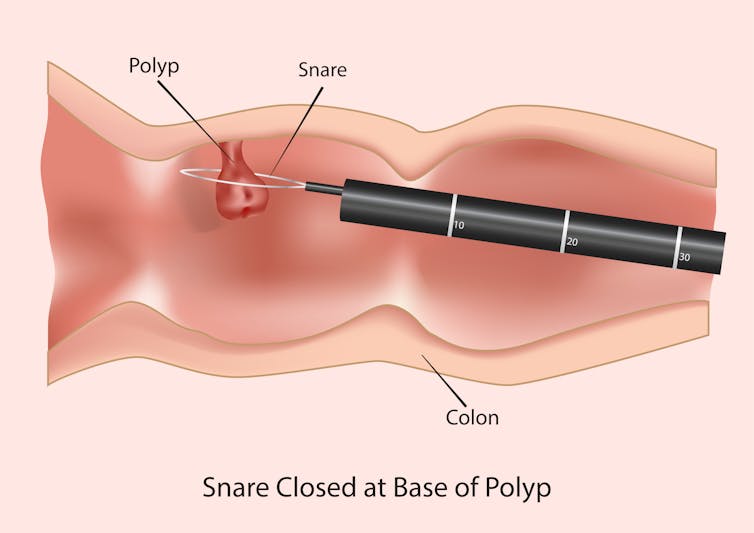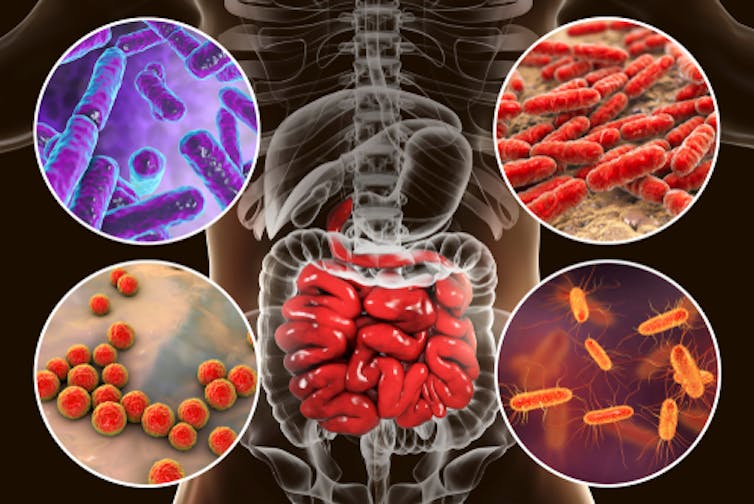Colorectal cancer increase in younger adults: What could be the cause?
Colorectal cancer rates among older adults have been declining, but diagnoses in adults younger than 50 have increased. As Colorectal Cancer Awareness Month winds down, a researcher offers insight.

Colorectal cancer remains a major source of cancer incidence and death in the United States. The American Cancer Society estimates that in 2019, there will be 145,600 new cases of the disease and 51,020 deaths across the United States, making it the fourth most diagnosed form of cancer and the second leading cause of cancer mortality.
This means that every hour, 17 families in the nation will learn that one of their members has colorectal cancer, or cancer of the large intestine or rectum, and that six families will lose one of their members to the disease. Despite these sobering numbers, there is good news.
Overall incidence and mortality rates for colorectal cancer have actually been on the decline since the mid-1980s, primarily as a consequence of increased engagement in preventive screening, more effective diagnosis and treatment, and greater awareness of risk factors (such as family history, obesity, physical inactivity, smoking, heavy alcohol use, and diets rich in red and processed meats) and symptoms (chronic diarrhea or constipation, narrowing of the stool, rectal bleeding, blood in the stool, cramping or abdominal pain, and chronic weakness and fatigue).
Unfortunately, such is not the case for young people. Colorectal cancer incidences and deaths have been increasing over the last 30 years in people under 50 years of age. As a scientist conducting basic research on colorectal cancer, I have been generally aware that this was occurring. However, two recent events impassioned me about the issue.
First, in 2017, Dr. Rebecca Siegel and colleagues published detailed and compelling statistical data clearly showing that while the disease in younger people remains a relatively small fraction of the total, it is rising at an alarming rate.
This is in striking contrast to the situation for older people, in whom colorectal cancer is decreasing. These findings significantly brought the young adult issue into focus, and raised public awareness of its existence.
Second, at about the same time, I attended a conference where I met a number of young people, including several in their 20s and 30s, who had been diagnosed with colorectal cancer and were in the midst of fighting it. I also met parents who lost young adult children to the disease. The emotions displayed by these people were particularly acute, representing the intersection of anger, resentment, embarrassment, hopelessness and fear. I came away from that meeting committed to gaining an understanding of the increase in colorectal cancer among young adults, and doing something about it.
Screening can actually be a cure

With screening, precancerous growths called polyps and early-stage cancers can be readily detected and actually removed before they advance to dangerous, life-threatening stages. Thus, screening has become an indispensable strategy for the early-detection and prevention of colorectal cancer. Any of a number of methods for colorectal cancer screening are now available, including colonoscopy, flexible sigmoidoscopy, imaging and several stool-based tests.
The U.S. Preventive Services Task Force currently recommends that for the general population, screening should begin at age 50, based on the knowledge that approximately 90 percent of cases occurs in those 50 and over. It is this population that is experiencing the decrease in colorectal cancer incidence and death that is currently being observed.
However, screening is not typically recommended for those under 50. This, along with a general lack of awareness about colorectal cancer and its symptoms among young people, their families and their primary care providers, results in prolonged times for symptomatic patients to obtain a firm diagnosis. Late diagnoses often result in more advanced stages of the disease, when it is harder to treat.
To address this, the American Cancer Society recently recommended lowering the screening age to 45 in order to catch a good percentage of the younger people who may be at risk for disease. Though this recommendation is based upon detailed analysis of the efficacy and costs of colorectal cancer screening, health-related professional organizations such as the U.S. Preventive Services Task Force and the Centers for Disease Control and Prevention have yet to adopt them.
A perplexing medical mystery
What is causing colorectal cancer to increase in young adults? In short, we do not know for certain, but a great deal of ongoing research is aimed at answering this vitally important question. Several studies have indicated that the disease in young people is different in pathology, genetics and response to treatment from that in older people. Lifestyle trends, such as being overweight and obesity, lack of physical activity and changing diets, have been suggested to play roles.
Indeed, a recent study shows that obesity is associated with increased risk of early-onset colorectal cancer in women.
While these trends may be involved, many physicians have told me anecdotally that many of their young colorectal cancer patients appear thin, fit and active, suggesting that something else may be going on.
What could that something else be? There is persuasive evidence that features of early life contribute to risks for a number of adverse health effects that occur in later childhood, teen ages, and even in young adults. This include such things as: whether a baby was born via Caesarian section or vaginally; diet and nutrition; antibiotic use; whether a baby was nursed or fed formula; contact with microbes; and stress.
The health effects of these various factors have been linked to obesity, immune disorders, allergies, asthma and diabetes, among others. The billions of microbes that live on and within our bodies, collectively termed the microbiota, undergo many changes during the period between birth and ages 3 to 4, and are highly susceptible to perturbation by the kinds of exposures listed above.

It is possible, therefore, that microbes may be key in linking early life exposures to later life health. Our research group is currently examining the possibility that increasing colorectal cancer incidences in young adults may be a consequence of environmental exposures that occur at very young ages, during the first few years after birth. For example, we have recently shown that in mice, antibiotic treatment causes depletion of the microbiota, along with an increase in development of precancerous tumors.
Sorting out the causes of young-adult colorectal cancer, and understanding the nature of the disease more thoroughly, will take time. While this research is going on, it is critical that young people, their families and their primary care providers become aware of, and pay attention to, family histories, lifestyles and symptoms, so the possible occurrence of colorectal cancer is recognized early and dealt with in a timely manner.
Colorectal cancer is a difficult and emotional disease at any age. This is especially so in young adults. Awareness of signs and symptoms, along with engagement in screening as appropriate, will lead to the eventual eradication of the disease as a major form of cancer.
Franklin G. Berger has received funding from the National Institutes of Health, the BlueCross BlueShield of South Carolina Foundation, and The Duke Endowment.
Read These Next
Enforcing Prohibition with a massive new federal force of poorly trained agents didn’t go so well in
Both Prohibition and current mass deportation efforts were hastily built, staffed by people permitted…
Colorado has high levels of radon, which can cause lung cancer – here’s how to lower your risk
Only 50% of Colorado homes have been tested for radon.
Menstrual pads and tampons can contain toxic substances – here’s what to know about this emerging he
Heavy metals, phthalates and other potentially harmful chemicals have been detected in a range of menstrual…






